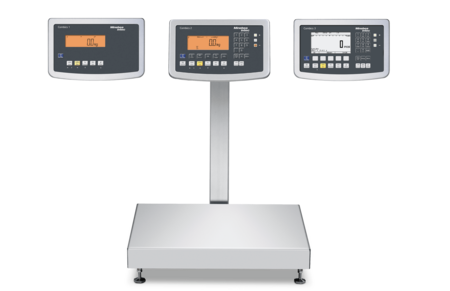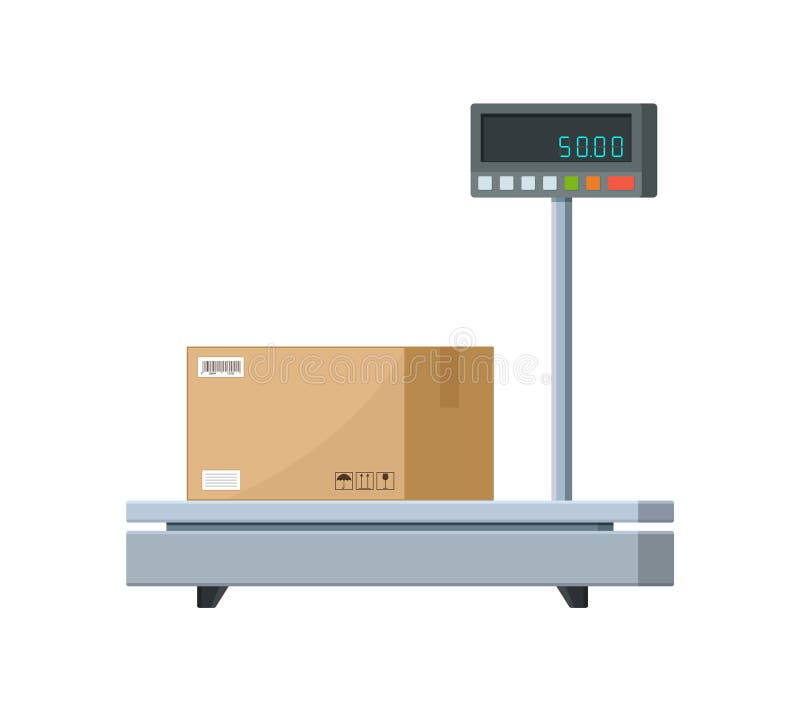How Industrial Scales Enhance Safety and Precision in Bulk Weighing Applications
How Industrial Scales Work: A Comprehensive Summary for New Users
Understanding the auto mechanics behind commercial scales is essential for new users that intend to make sure precision in their measurements. These tools count on lots cells and pressure gauge innovation to transform weight right into a quantifiable format, but the nuances of their procedure extend past simple capability. From the numerous kinds available to the crucial techniques for appropriate usage and upkeep, each element plays a substantial role in achieving reliable outcomes. As we explore these components, one need to take into consideration exactly how these elements engage to enhance efficiency in varied commercial applications.
Basics of Industrial Scales
Industrial scales are crucial tools utilized across different industries, including production, logistics, and agriculture, to make sure exact weight measurements of heavy lots. The basic principle behind industrial scales involves the conversion of weight into a measurable kind that can be shown electronically or analogically. These scales use numerous systems, such as lots cells or mechanical levers, to identify the weight of objects positioned upon them.

In enhancement to their measurement capabilities, industrial scales are developed to withstand harsh environments, including durable construction that resists dust, dampness, and heavy impacts. Calibration and maintenance are essential to make certain accuracy, as also small disparities can lead to significant monetary effects. By understanding the essentials of industrial ranges, customers can value their relevance in different commercial applications.
Sorts Of Industrial Scales
Various kinds of industrial scales provide to the varied needs of various markets, each created to take care of particular weighing tasks with precision and reliability. Among one of the most usual types are flooring scales, which are excellent for weighing large and heavy items. These ranges normally include huge systems and can fit palletized items, making them crucial in storage facilities and delivery centers.
An additional type is bench ranges, which are often used for smaller things in manufacturing and retail setups. They provide accurate measurements for products that need precision, such as chemicals or components in assembly lines (Industrial Scales). For mobile operations, mobile ranges use versatility and convenience of transport, ideal for fieldwork or short-term installations
In applications needing high-capacity dimensions, such as wholesale product handling, crane ranges and load cells are employed. These ranges can gauge loads put on hold from a crane or other lifting apparatus, making sure safety and security and accuracy throughout procedures. Additionally, specialized scales like checkweighers are utilized in manufacturing lines to maintain quality assurance by ensuring that items meet weight requirements. Each type of commercial scale plays a critical function in boosting operational efficiency and accuracy throughout various fields.
Just How Weighing Devices Work
Weighing devices are necessary components that make it possible for precise dimension of mass throughout various commercial scales. These systems utilize different principles of physics and design to offer exact weight analyses, necessary for inventory management, quality assurance, and conformity with regulative standards.
One common kind of weighing system is the lots cell, which runs on the concept of strain evaluates. When a lots is applied, the tons cell deforms somewhat, creating an electric signal symmetrical to the weight. This signal is then exchanged a readable weight dimension by the scale's electronic devices.
One more widely made use of system is the mechanical equilibrium, which utilizes a system of bars and weights. Industrial Scales. This approach depends on the concept of equilibrium, where the weight of the things being determined is stabilized against recognized weights, permitting straight measurement
Additionally, pneumatically-driven and hydraulic ranges leverage liquid dynamics principles to gauge weight. These systems use the stress exerted by a tons to determine weight, providing high precision for enormous lots.
Proper Use Strategies
When utilizing industrial ranges, sticking to proper use strategies is essential for making certain accurate measurements and keeping devices honesty. Most importantly, it is vital to pick the suitable scale for your particular application, as ranges differ in ability and precision.
Before weighing, guarantee that the range is put on a secure, degree surface devoid of disturbances or vibrations. This will assist to decrease errors triggered by exterior variables. In addition, adjust the range according to the producer's specs prior to make use of, guaranteeing that it is operating correctly.
When positioning things on the range, distribute the weight evenly to stay clear of tipping or damaging the equipment. Always permit the range to support before taping the weight, as changes may occur during preliminary placement. For bulk products, utilize containers that are appropriate for the range dimension to avoid overloading.
Furthermore, prevent positioning overly warm or chilly products directly on the scale, as temperature level variations can affect precision. Last but not least, maintain the considering platform free and tidy of debris to stop contamination and ensure trusted results. By adhering to these methods, customers can optimize the performance and longevity of their industrial ranges.
Maintenance and Calibration Tips
Guaranteeing the long life and precision of industrial ranges needs diligent go to these guys maintenance and normal calibration. A preventative maintenance timetable is essential; it must include regular evaluations to determine damage, specifically on tons cells and various other sensitive elements. Consistently cleaning up the scale's surface area and ensuring the bordering location is complimentary from debris will certainly assist preserve its honesty and performance.
Calibration is similarly crucial and must be executed at routine periods or whenever the range click here to read experiences significant adjustments in temperature level, moisture, or physical variation. Use certified calibration weights that are traceable to nationwide criteria for precision. Document each calibration session carefully to track efficiency with time and recognize any patterns or repeating concerns.
Additionally, be conscious of the range's setting. Stay clear of positioning it near resources of vibration, electromagnetic interference, or extreme temperatures, as these elements can negatively influence dimensions. Ultimately, train all drivers on correct range use and upkeep procedures to make certain consistent performance and precision. By sticking to these upkeep and calibration tips, customers can boost the integrity of their commercial ranges, guaranteeing optimal procedure in any type of setting.
Verdict

Recognizing the technicians behind industrial ranges is crucial for new customers who want to ensure accuracy in their measurements.Industrial scales are vital devices used throughout different markets, consisting of production, logistics, and farming, to make sure precise weight dimensions of check over here heavy tons. The essential principle behind industrial scales entails the conversion of weight right into a quantifiable kind that can be shown digitally or analogically. By comprehending the basics of commercial ranges, customers can value their significance in different commercial applications.
In conclusion, understanding the procedure and upkeep of industrial scales is crucial for ensuring exact weight dimensions in different applications. (Industrial Scales)